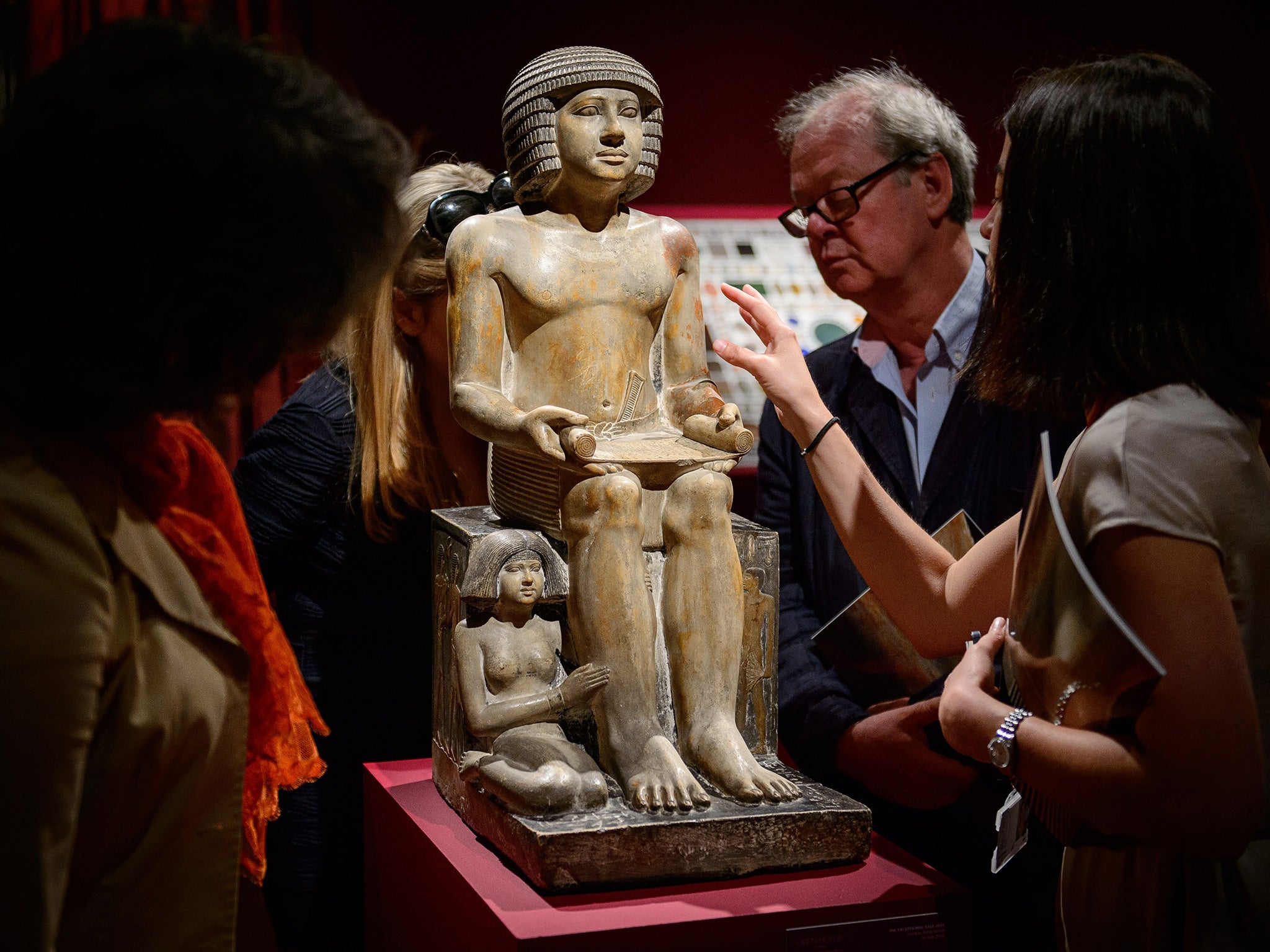Ancient Egyptian statue of Sekhemka disappears into private collection in 'moral crime against world heritage'
Campaigners call for an end to anonymous auction house sales of art after Panama Papers expose 'unethical and anonymous trade in high-end antiquities for tax purposes or money laundering'

An Ancient Egyptian statue described as an “irreplaceable masterpiece” has now probably left the UK after its sale for nearly £16m by a British museum to a mysterious private collector, campaigners have said.
The Government had put an export ban on the 4,500-year-old statue of Sekhemka, amid attempts in Egypt to crowdfund enough money to buy it.
Campaigners in the UK and the Egyptian antiquities minister Mamdouh al-Damaty were appalled that the statue would no longer be on public display, with Mr Damaty describing its sale by Northampton Borough Council as “a moral crime against world heritage”.
Following the lifting of the export ban, the Save Sekhemka Action Group UK said in a statement: “It is with great sadness that we report that the statue is now likely to have left the UK for an unknown fate thus making our campaign work over the past three years and 10 months invalid.
“It is regrettable that during this time we have found no official support for our campaign from the great national museums and that the impartial condemnation of Northampton Borough Council by Arts Council England and the Museums Association made no impression.”
It has been rumoured to have been sold to either a private American or Qatari collector.
Arts Council England has stripped Northampton Museum of its accreditation status until at least 2019, meaning it is no longer eligible for a string of public grants and other funding, because the sale breached conditions covering the disposal of historic artefacts.
The limestone statue, which is about 2.5ft high, shows Sekhemka and a smaller figure, assumed to be his wife, kneeling beside him. The scribe’s ability to read and write at a time when very few would have conferred significant status.
Spencer Compton, the second Marquis of Northampton, acquired the statue during a trip to Egypt in around 1850, but it was donated to the museum by the family about 30 years later.
The Sekhemka Action Group added: “In view of the revelations from the so-called Panama Papers showing the unethical and anonymous trade in high-end antiquities for tax purposes or money laundering it is high time that the Arts Council England, the Museums Association and the museum world insist that the UK Government ends the right to anonymity in auction rooms.
“In the same way that property owners must soon declare the beneficial owner, so must and should purchasers of high end art and antiquities.”
The action group said it would end its campaign but wished “our Egyptian colleagues well in their continuing attempts to seek legal redress over the unethical sale of Sekhemka”.
“Finally we appeal to the rumoured American buyer of Sekhemka – please lend the statue permanently to the Brooklyn Museum, New York, which is already looking after a damaged statue of a similar age and personage, in order that Sekhemka may again be on display thus fulfilling some of the conditions laid down in the 4th Marquess of Northampton’s Deed of Gift.”
A spokeswoman for Northampton Borough Council said it did not know where the statue was.
“We don’t have the faintest idea because we sold it nearly two years ago, so it’s something we are not kept informed about,” she said.
Join our commenting forum
Join thought-provoking conversations, follow other Independent readers and see their replies
Comments
Bookmark popover
Removed from bookmarks